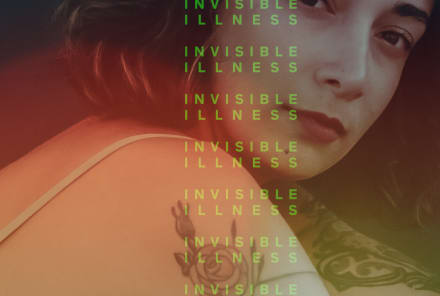Advertisement
There Are 4 Types Of Depression (According To Science)


Ever feel like health news is too overwhelming, fast-paced, or hard to decipher? Us too. Here, we filter through the latest in integrative health, wellness trends, and nutrition advice, reporting on the most exciting and meaningful breakthroughs. We’ll tell you exactly what you need to know—and how it might help you become a healthier and happier human.
Often identified by changes in mood, appetite, sleep, energy, and cognition—depression has a lot of different symptoms. And to be diagnosed a patient only has to display some of these, making diagnosis challenging and finding the right treatment even more difficult. Oftentimes, people just try different medications until they find one that actually helps—and some never land on one that works at all.
Because of this, it's long been suspected that there are different forms of depression, and now, science just caught up with that theory. A new study, published in Nature, showed that patients with depression can actually be divided into four subtypes, characterized by specific patterns of dysfunction in brain.
Taking pictures of the brain
This study included 1,000 people (40 percent with diagnosed depression) and used functional magnetic resonance imagining (fMRI) to measure over 250 different areas of the brain and track the way they are connected to one another. Data showed that people with more depressive anxiety had lower connectivity in networks associated with fear, and people who have difficulty feeling pleasure displayed hyperconnectivity in areas of the brain responsible for motor control.
When researchers fed this data into a fancy artificial intelligence program—called a machine learning program—the results showed four distinct groups, each characterized by specific patterns of dysfunction in the brain. And this really means something, because these four subtypes cannot be distinguished by their symptoms alone. In other words, with this new information, doctors might have way more to work with.
Technology is cooler than ever.
The technology used in this study allowed mass amounts of intricate data to be sorted, and brain imaging gives doctors a true picture of the disorder, in all its complexity. Hopefully in the years to come we will see treatments that target specific patterns of brain activity associated with the different subtypes of depression. This would mean less frustrating trial and error and fewer people taking medications that aren't really doing the job.
This strategy could likely be extended to other mental illnesses like anxiety and OCD, which are huge burdens on patients, our health care system, and are also characterized1 by a complex web of symptoms and divergent responses to medications.
Watch Next
Enjoy some of our favorite clips from classes
Enjoy some of our favorite clips from classes
What Is Meditation?
Mindfulness/Spirituality | Light Watkins
Box Breathing
Mindfulness/Spirituality | Gwen Dittmar
What Breathwork Can Address
Mindfulness/Spirituality | Gwen Dittmar
The 8 Limbs of Yoga - What is Asana?
Yoga | Caley Alyssa
Two Standing Postures to Open Up Tight Hips
Yoga | Caley Alyssa
How Plants Can Optimize Athletic Performance
Nutrition | Rich Roll
What to Eat Before a Workout
Nutrition | Rich Roll
How Ayurveda Helps Us Navigate Modern Life
Nutrition | Sahara Rose
Messages About Love & Relationships
Love & Relationships | Esther Perel
Love Languages
Love & Relationships | Esther Perel

















